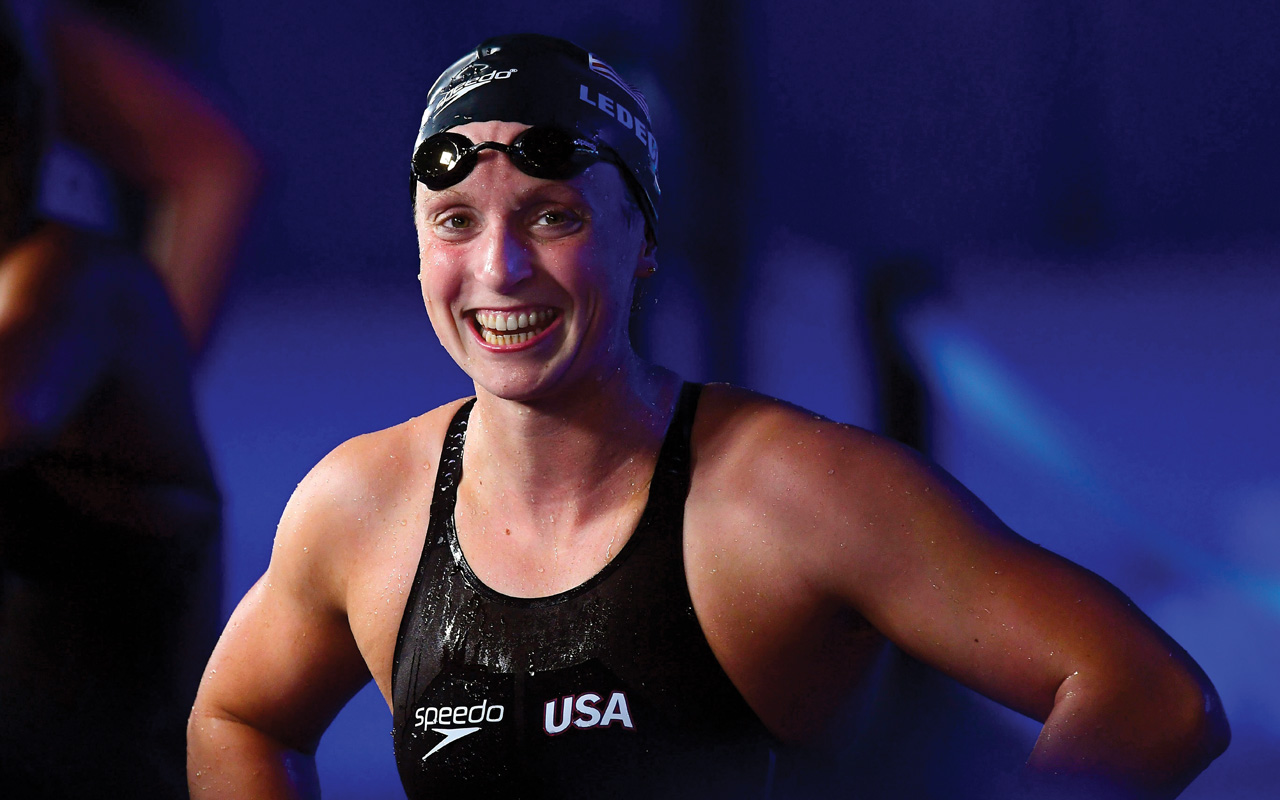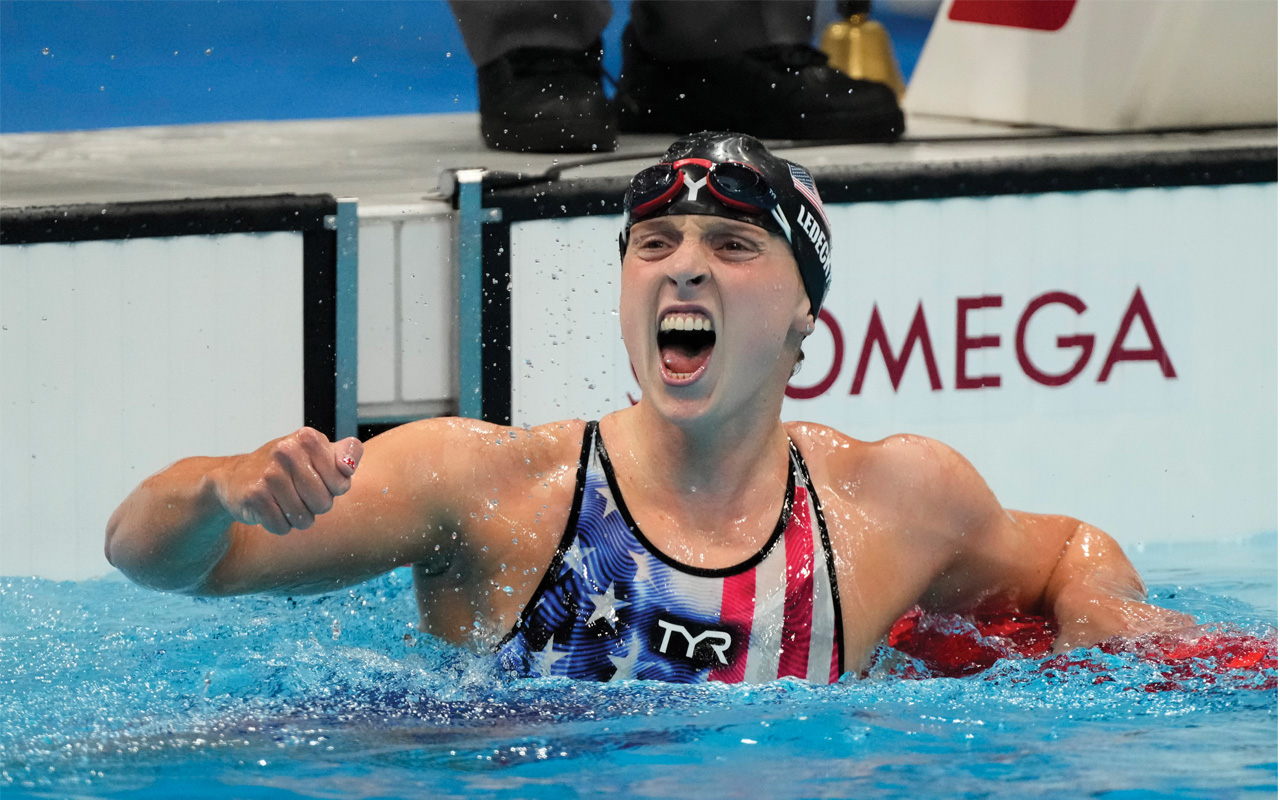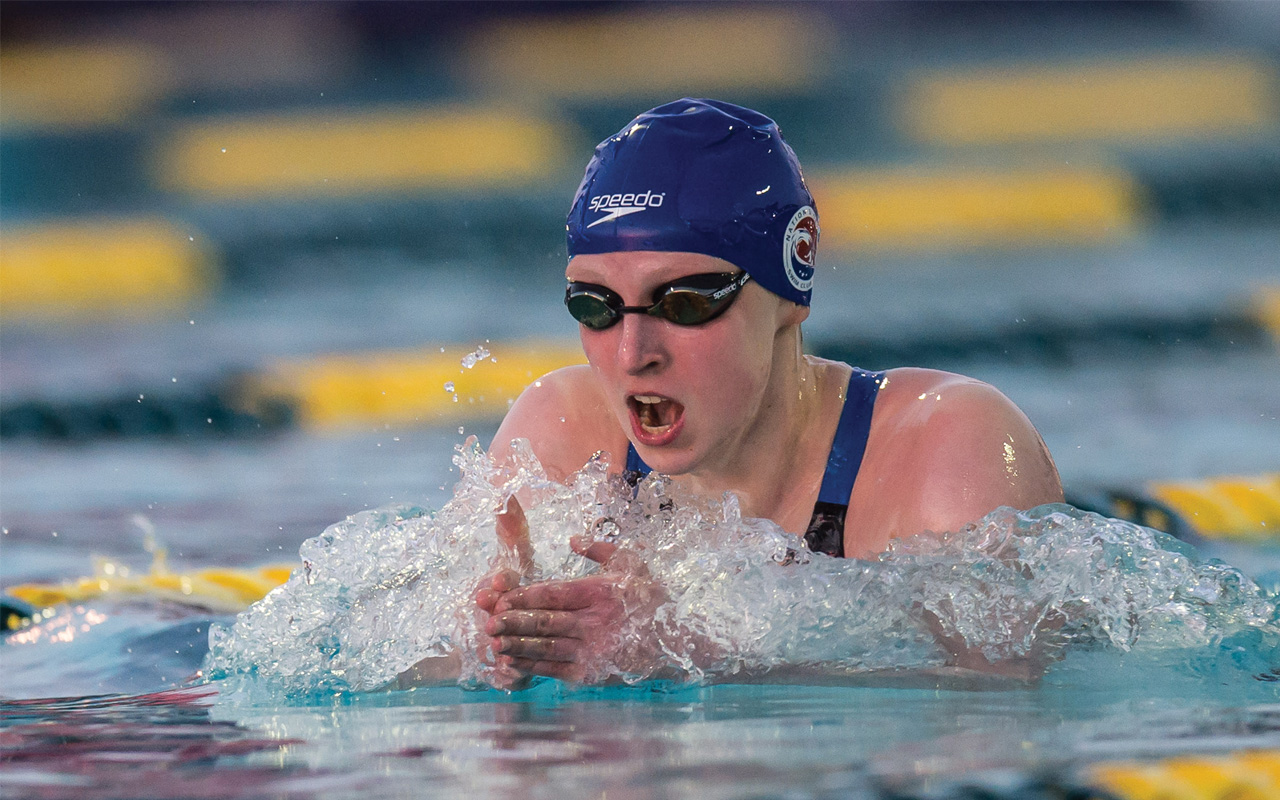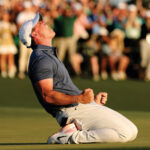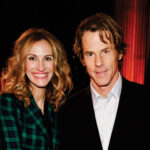Katie Ledecky smiles after winning the women’s 800-meter freestyle final of the FINA Swimming World Championships in Budapest, Hungary (CNS photo/Tamas Kovacs, EPA)
The 2024 Paris Olympics have finally arrived and just as the Opening Ceremonies kick off on July 26th, all eyes will be on Stanford University alum, Katie Ledecky, who will be thrilling viewers all over the world – swimming in her fourth Olympics.
This greatest female swimmer of all time has won more individual Olympic races than any female swimmer in history. She is a seven-time gold medalist, a twenty-one-time world champion, eight-time NCAA Champion, and a world record-holder in individual swimming events. Time and again, the question is posed to her family, her coaches, and to her—what makes her a champion?
Again and again, Ledecky has broken records: those of others and, increasingly, her own. She is both consistent and innovative—consistent at setting goals and shattering them, and innovative in the way she approaches her training. A true competitor, she sets her goals by choosing the ones that feel the scariest. But, crucially, she never sacrifices the joy of competition, even in the face of adversity. Her positive mental outlook and a great support system provides the springboard to her success.
Katie has just released her book, Just Add Water, in which she shares what it takes to compete at an elite level.
The book charts Katie’s life in swimming. It details her start in Bethesda, Maryland, where she played sharks and minnows and first discovered the joy of the pool; her early foray into the Olympics at the tender age of fifteen where, as the youngest member of the American team, she stunned everyone by winning her first gold medal.
We learn about Katie’s time balancing competition and her education at Stanford University; how she developed a champion’s mindset that has allowed her to persevere through so many meets, even under intense pressure; and how she has maintained her dominance in a sport where success depends on milliseconds.
You learn how every element of her life—from the support of her family to the tutelage of her coaches, from her childhood spent in summer league swimming to the bright lights of Olympic pools in London, Rio, Tokyo and Paris—set her up to become the champion she is.
In the end, Katie’s story is about testing herself against the difficult, and seeing who she can become on the other side.
Ledecky (USA) celebrates after winning the women’s 1500m freestyle final during the Tokyo 2020 Olympic Summer Games at Tokyo Aquatics Centre. Photo: Rob Schumacher-USA TODAY Sports
“Swimming hit me differently than other sports. It was love at first plunge. It provided resistance. That elemental shift from moving through air to moving through water was the heart of my relationship with the pool. Water made me feel weightless even as it forced me to pull more weight while I swam. In a pool, I was unencumbered and able to flip and turn and spin my body in every direction. When I wasn’t in the pool. I yearned for the buoyancy. I craved the resistance. I wanted to test my limits in the water. So, I did, starting at age six, and never once stopping.”
“I swam my first race on June 25, 2003. I was never some kind of prodigy who dove into the water and was able to zoom to the end. Something sparked as my eyes landed on the other swimmers cruising by. I always smile when I think about that first race. My observations as an eager, exhausted six-year-old have become the template for my whole swimming journey. Great. Hard. Just trying to finish.”
“In the twenty years since that day, swimming has not ceased being hard. Uniquely so. It tests my body and my psyche equally. It challenges me like a marathon – with the added burden of the force of water reminding me with every stroke what I’m up against. The hard is kind of what makes swimming great. Giving your best effort has been baked into my DNA for generations. Trying hard is the whole point. I didn’t grasp the significance of this when I was a kid. But some part of my brain or my body understood that happiness would result from being in a space where the mind can run quiet, and the body can try hard. Swimming is an unusual career in that it comes down to the will of the swimmer. I am the only one who has been in the pool with every stroke of the way.”
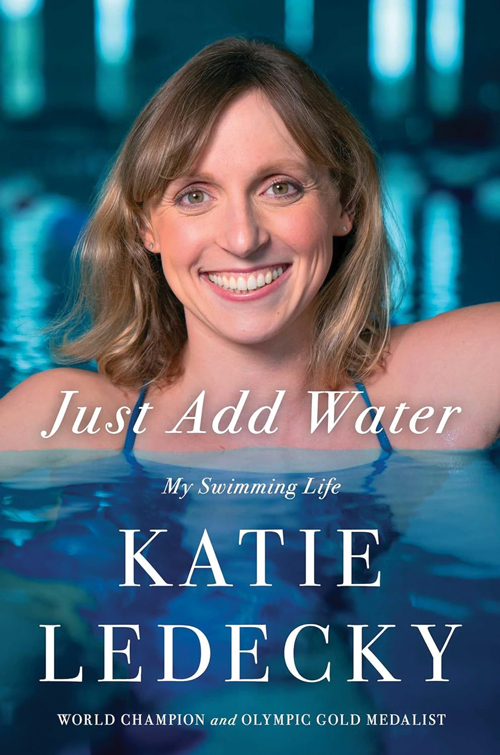 “I’ve heard a lot of my swimming peers say that when they were young, they always knew they wanted to go to the Games, but that wasn’t my experience. Back then I looked at the Olympics and thought you had to be a superhero to reach that level. They seemed to be so fast, so focused, so otherworldly. Yet here I am, entering my fourth Olympics in Paris.”
“I’ve heard a lot of my swimming peers say that when they were young, they always knew they wanted to go to the Games, but that wasn’t my experience. Back then I looked at the Olympics and thought you had to be a superhero to reach that level. They seemed to be so fast, so focused, so otherworldly. Yet here I am, entering my fourth Olympics in Paris.”
“For as long as I’ve been swimming, I’ve had people asking how I got where I am. They speculate about my physiology, analyze the geometry of my body, comb through my training. For a lot of people in the sporting community, I am a code that, if cracked, will enable them to replicate my results. In this book, I lay out all the ingredients of my swimming life.”
After reading Katie’s book, I found these words from her particularly powerful:
“Swimming has rendered me into someone I wouldn’t be otherwise. Long after another swimmer breaks my records, I’ll still have the benefit of being raised in and by the pool. I hope my tenacity outlasts any blip of athletic fame. That would be the gift of a lifetime.”
What a humble statement from this Olympic great.
Just Add Water: My Swimming Life. Amazon

